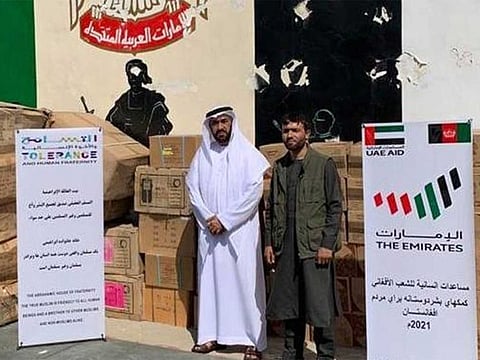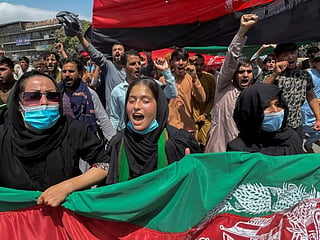Afghanistan is in a critical state
Relief aid must flow to help millions in greatest need now

It is a month now since the Taliban regained control of Afghanistan, creating a socioeconomic crisis that compounds a tenuous situation in one of the world poorest countries during and after four decades of incessant conflict.
Before the Taliban’s sweep to power, some 14 million people across the country were already dependent on aid and food programmes — humanitarian relief that flowed with the support of international governments and refugee agencies. Now, that figure has increased significantly — it is hard to compute numbers given the uncertainty — and humanitarian groups say at least 18 million now are in need of food, medicinal and nutritional support.
Clearly, supporting that many homeless, displaced and vulnerable people — most with young children who are susceptible to communal diseases from living in cramped and near-squalid conditions — requires a huge international effort.
There is good news in that the international community and donor nations have pledged more than $1 billion to help those most in need in Afghanistan. It is a significant step given that international and humanitarian aid from the international community had all but dried up since the Taliban came to power.
Afghanistan situation perilous
United Nations Secretary-General Antonio Guterres said earlier this week that $606 million was needed immediately, with much more to follow to ensure that the desolate in Afghanistan — along with those who have fled its borders to camps and a tenuous existence in neighbouring countries — were adequately cared for.
UN is also cautioning that the situation in Afghanistan remains perilous, with the growing prospect of full economic collapse bringing more hardship to millions more.
Indeed the challenge now for the broader international community is to figure out just how and what aid can be provided to those most in need.
While the Taliban have not yet been officially recognised as a legitimate government by a large aspect of the international community, aid and humanitarian agencies providing desperately needed relief on the ground must somehow thread the geopolitical complexities to continue their work.
The provision of more than $1 billion in pledge aid is a promising start and certainly needs to be acknowledged. But the reality too is that there is much more needed now — and certainly much more as the economic situation deteriorates causing hardship and privation for millions.
How we treat those most in need currently in Afghanistan speaks to the very essence of our humanity.







